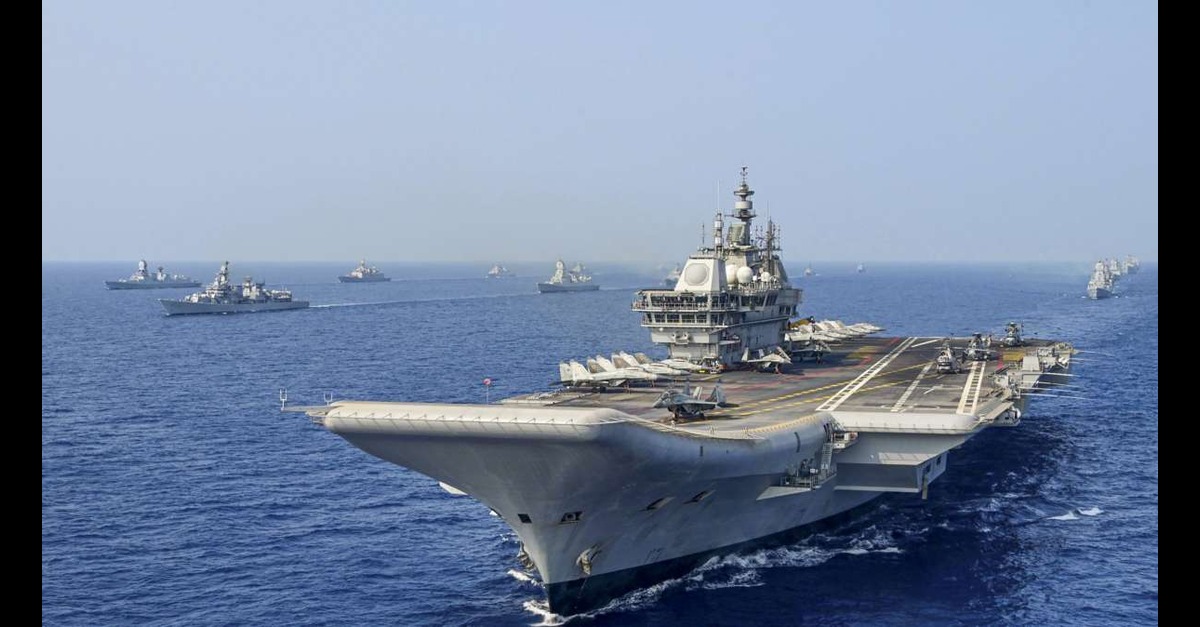Introduction
During a recent press briefing, Vice-Admiral A. N. Pramod, Director General of Naval Operations, highlighted the role played by the Indian Navy in pushing Pakistan to make an “urgent request for ceasefire.”As per him, India’s overwhelming operational dominance at sea—coupled with the Indian Army and Air Force operations—pushed Pakistan into a strategic corner with minimal choices. News also states that Karachi port, a crucial economic and maritime hub, was badly damaged. This has triggered new interest in the legality of such naval activities under international law, especially regarding deterrence, sovereignty, and proportionality.
Background
Dominance of the Indian Ocean Region (IOR) has been at the core of Indian military strategy. Traditionally, operations like Operation Trident in 1971 directly attacked the Karachi port with military precision.The recent destruction of Karachi port speaks to the continued importance of sea power in defining military and diplomatic results.But such operations—if conducted during peacetime or undeclared wars—will have to satisfy the legal requirements stipulated in the UN Charter, customary international law, and the Law of Armed Conflict (LOAC).Vice-Admiral Pramod’s contention illuminates the manner in which maritime deterrence—when made overtly effective—can turn into an extremely effective instrument of coercive diplomacy, posing fundamental questions regarding legality, necessity, and proportionality.
Key Points
- Strategic Deterrence and Lawful Use of Force: Under Article 51 of the UN Charter, there is a right of self-defence of States if an armed attack occurs.The pre-emptive or retaliatory strikes, especially ones causing destruction of civilian installations like ports, would be legitimate based on whether they were necessary in order to face a real and imminent threat and whether they were proportionate.
- Civilian Infrastructure and Principle of Distinction: Destruction of the port at Karachi creates question about adherence to the principle of distinction under International Humanitarian Law (IHL) that obligates parties to make a distinction between civilian objects and military objectives. If the port was targeted to serve the logistical needs of the military, then the attack could be justified under the law; otherwise, the attack could be criticized as being a violation of IHL.
- Employment of Naval Power as Coercion: Vice-Admiral Pramod’s comments indicate that India’s naval posture was the key to coercing Pakistan diplomatically. Although coercive diplomacy is not unlawful in itself, it should not cross the line into illegal threat or use of force under Article 2(4) of the UN Charter. India’s case would be based on the necessity and defensive nature of its actions.
- Precedents and Legal Standards in Naval Combat: India’s naval doctrine seems in line with traditional practices of blockade, sea denial, and precision strikes by target—all having acknowledged legal standing under specific conditions in LOAC and customary law. Yet, each case should be examined on a case-by-case basis to ascertain whether it adhered to the principle of proportionality and upheld neutral rights.
Recent Developments
Speaking at a press conference on Sunday, Vice-Admiral A. N. Pramod, Director General of Naval Operations, stated:
“Along with the kinetic actions by the Indian Army and Indian Air Force, the overwhelming operational edge of the Indian Navy at sea contributed towards Pakistan’s urgent requests for a ceasefire.”
A major development was the severe damage to Karachi’s port, Pakistan’s largest, during the naval operations.The port’s critical infrastructure was affected, escalating both the military and economic impact on Pakistan. Though details are still coming in, it is assumed that the major military installations at the port were the targets, leaving legal issues of proportionality and necessity of the attacks under international law. Pakistan’s quick diplomatic reaction in calling for a ceasefire highlights the success of India’s naval strategy. The destruction of Karachi, added to naval and aerial pressure, left Pakistan in a precarious situation, and they felt compelled to seek de-escalation.
Conclusion
India’s application of naval capabilities in recent confrontations—both causing strategic damage to Karachi port and prompting Pakistan to request an urgent ceasefire—demonstrates the potency of contemporary multi domain deterrence.Legally, India must continue to follow the principles of proportionality, distinction, and necessity under international law. The episode demonstrates the fine balance between military forthrightness and legal constraint, reminding that maritime superiority, when responsibly wielded, is an effective vehicle for the attainment of strategic and diplomatic ends without protracted conflict.
“PRIME LEGAL is a full-service law firm that has won a National Award and has more than 20 years of experience in an array of sectors and practice areas. Prime legal falls into the category of best law firm, best lawyer, best family lawyer, best divorce lawyer, best divorce law firm, best criminal lawyer, best criminal law firm, best consumer lawyer, best civil lawyer.”
WRITTEN BY ADI MEHTA


